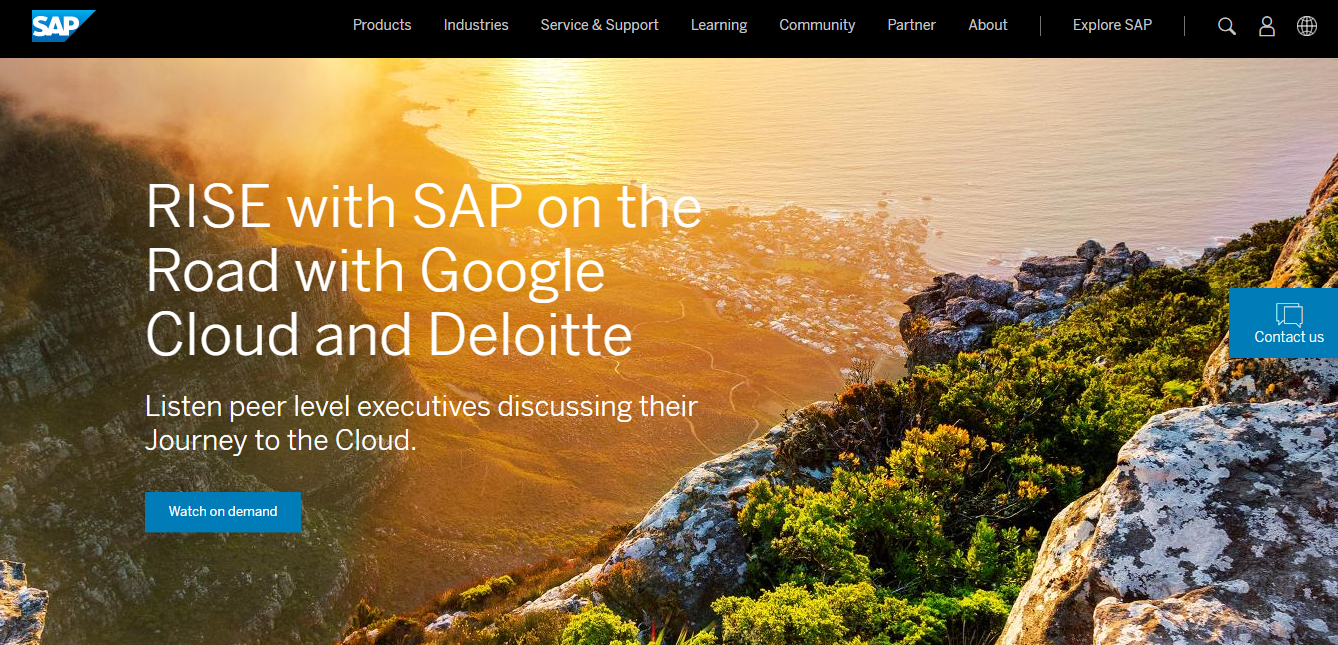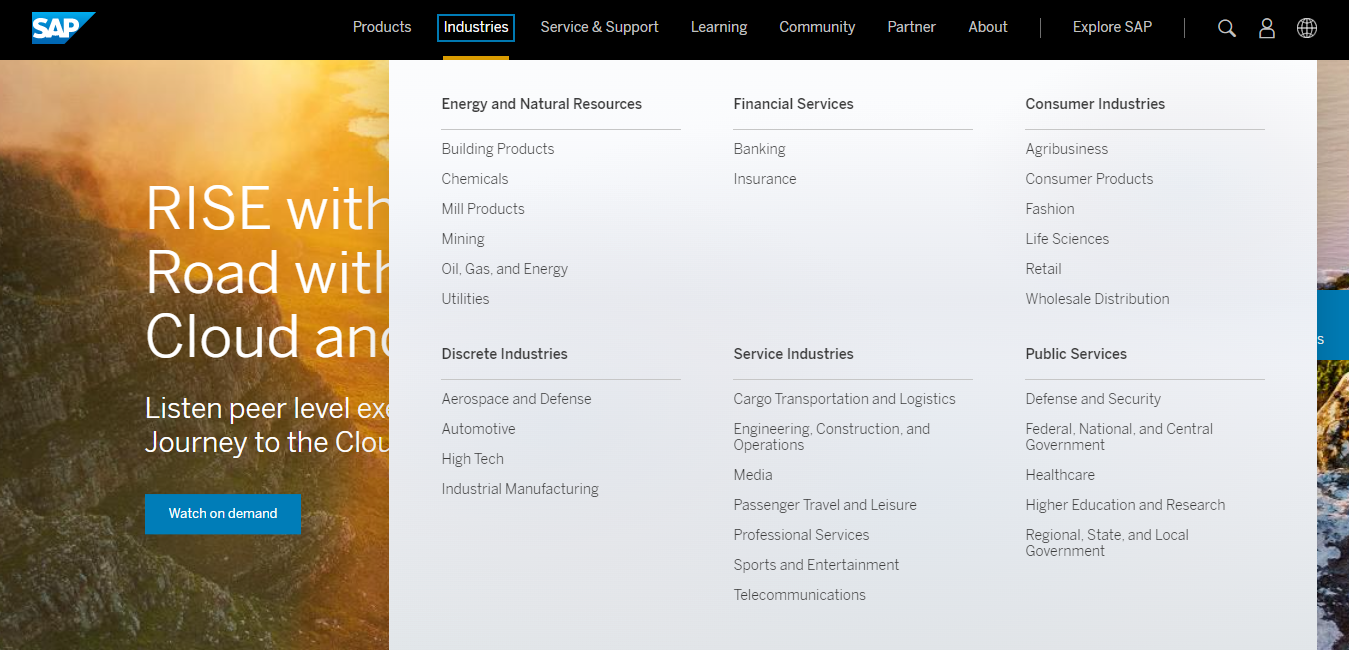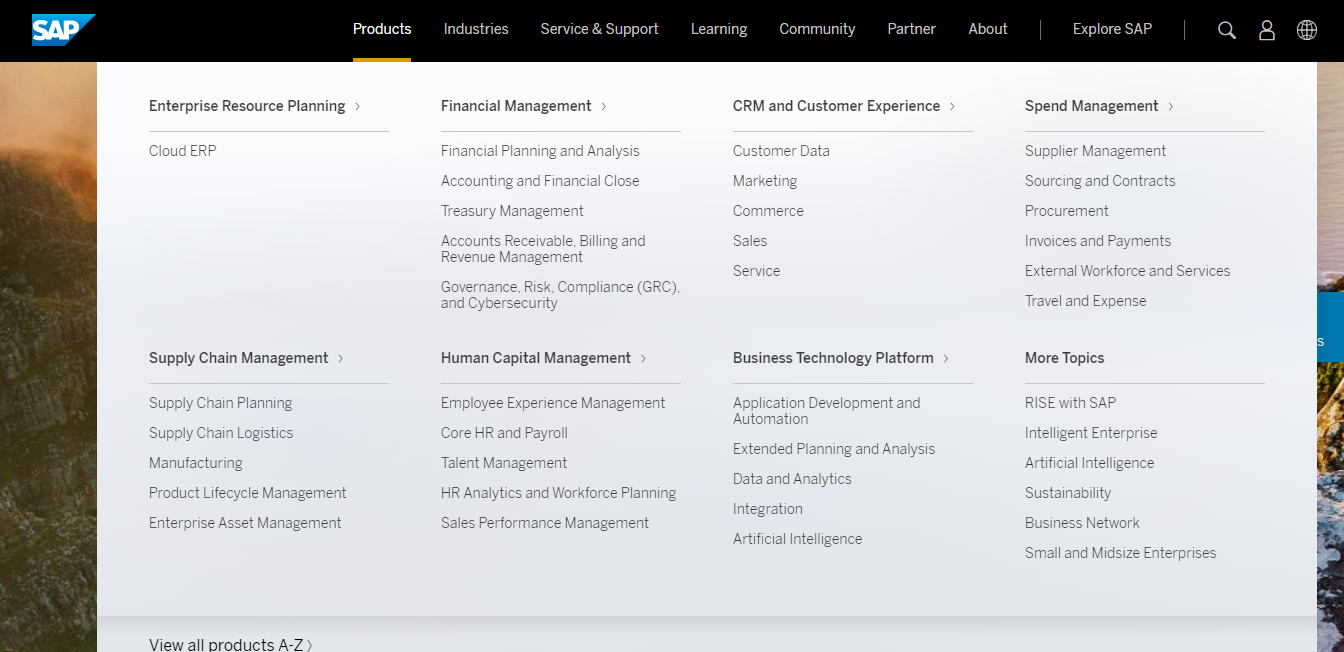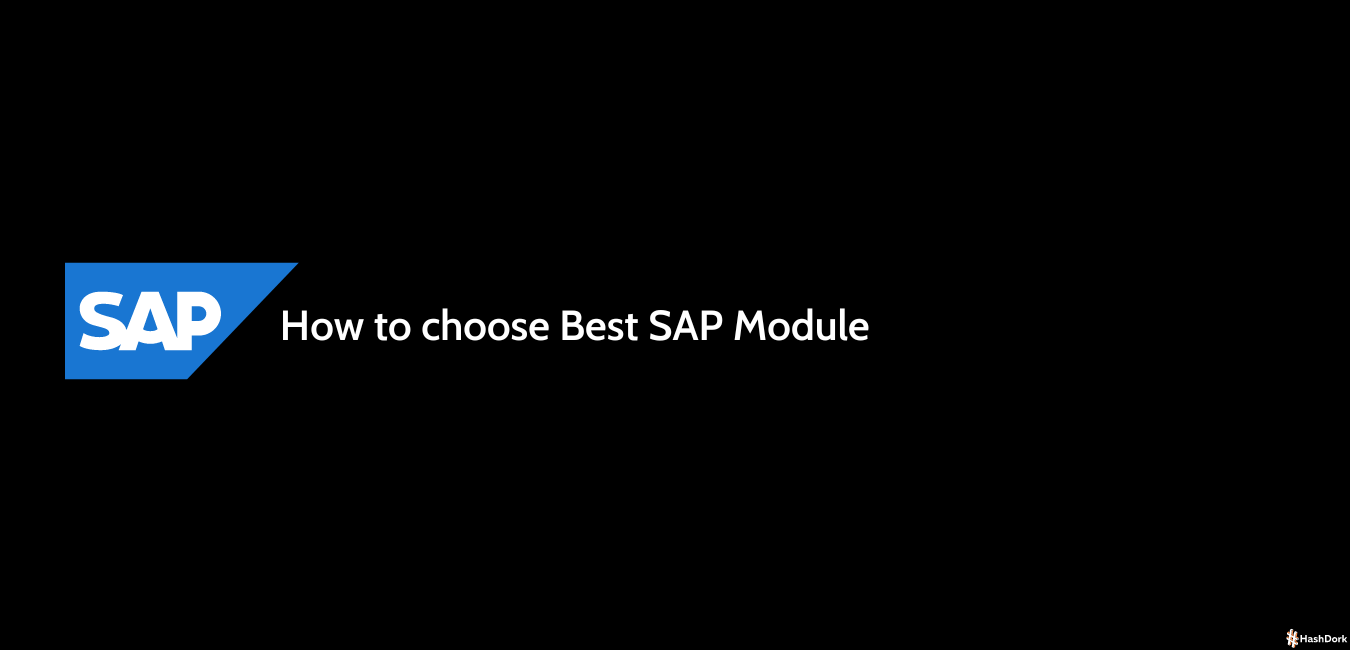Table of Contents[Hide][Show]
Choosing your SAP module is extremely important for your future career. You need to make sure that you select a module that will be in high demand and offer you plenty of opportunities for growth.
This blog post will discuss the different modules available and help you decide which one is right for you. We will also provide tips on how to make the most of your module selection. So, let’s get started!
What do We Mean By SAP Modules?
SAP modules are the building blocks of the SAP software. They are responsible for specific business processes and functions.
For example, the FI (Financial Accounting) module is responsible for managing financial data, while the HR (Human Resources) module is responsible for managing employee data.

There are over 25 different modules available in SAP, each offering a different set of features and functions. Selecting the module that best fits your skill set and career aspirations is important.
Factors To Consider When Selecting A SAP Module
There are a few factors that you need to consider when selecting an SAP module:
1. Job Opportunities
Before choosing a module, it’s important to understand the current job opportunities in the industry and select the SAP module based on your career path.
There are many job opportunities in the accounting and finance industries but fewer opportunities in sales and marketing, customer service, information technology, and human resources.
The selection will depend on the skills needed by each department. For example, you may have a sales background but have no previous experience with accounting or finance, which makes the Finance module a better choice.
Also, if you want to make a career change or start your own business, the more common modules will give you a better chance of finding a position or launching a new venture.
On the other hand, if you are currently employed with an organization, the modules used regularly may have better opportunities available to them than those used less often.
2. Role Structure and Responsibilities
In order for SAP to work effectively, roles must be defined. In other words, a role is simply someone who has certain responsibilities within the context of a given module. Some people are called business analysts, while others are known as ERP administrators or database administrators.
Each of these positions has its own responsibilities, and it’s important to understand what they are before applying.
3. Career Objective
This refers to your career aspiration within SAP – whether it’s a functional or non-functional role such as marketing, sales, consulting, etc.
If your goal is to become an SAP consultant, make sure the module you select can give you enough training for that goal.
4. Specific Skills Needed
Next, you must determine what you want to do within SAP. Do you need to manage inventory or just view inventory? Do you need to write reports or just view reports?
Are you good at accounting or sales? Understanding how you’ll be used within SAP to help narrow down your selection is important.
Once you have these three considerations, it’s time to evaluate the modules available. You’ll need to determine their specific purpose, which will allow you to narrow down your selection.
5. Educational Qualification
The educational qualifications required to become an SAP consultant or expert vary from module to module. This includes the type of education needed to pursue a master’s degree and what classes are covered in the training courses.
For example, the SAP Sales and Distribution (SD) module requires a bachelor’s degree in accounting or finance, and the Business Intelligence and Analytics (BI/A) module requires a master’s degree in business administration or a related field.
If you have less than a Bachelor’s Degree, then the selection of a module is not an easy decision to make. Before entering the SAP world, you should have a basic understanding of computer programming and database management.
Some Best Modules You can go for!
1. SAP Material Management (MM)
Material Management is a key area in the company, where inventory is tracked, transactions are processed, sales are recorded, and purchasing is done. It’s a crucial area of the SAP suite because it plays a vital role in determining the profits and losses of any organization.
Companies with a presence across multiple geographies will be using MM for material tracking and management. In this module, you will have to create materials’ sales, purchase, production, and inventory management entries.

2. Project System (PS)
The PS (Project System) is used to manage project information and work with other components such as work packages, time allocation, and resources. It allows you to define tasks and projects, generate reports, perform analyses, and create presentations.
A PS-equipped system can help you streamline projects by making it easier to define and manage projects from inception through completion.
3. SAP Finance (FI)
The FI module is the core of any company’s accounting system. It manages all financial information, such as income, expenses, profits, taxes, cash flows, etc. It also prepares and generates reports required to support decision-making. The FI module is highly customizable and flexible to adapt to any business structure or needs.
It also has advanced tools to simplify management, including inventory management, asset management, and purchasing. The FI module is perfect for the following jobs: Accountant, Controller, Business Analyst, Financial Manager, IT Manager, Inventory Manager, Salesperson, and Tax Preparer.
4. SAP Sales & Distribution (SD)
This module allows you to manage sales activities, products and services, customers, suppliers, and distributors. It supports various aspects of planning, budgeting, invoicing, forecasting, order processing, delivery, and more.
SAP SD is also known as SD-O because it’s an integral part of SAP ERP (SAP Enterprise Resource Planning) – which means that it can only be used with the appropriate version of SAP ERP.

5. Asset Accounting (AA)
Asset accounting is an asset management function within SAP. It’s responsible for recording the assets of the company and managing them throughout their lifecycle.
An asset can be anything from inventory to land, equipment to furniture, etc. Asset accounting is used for the purpose of financial reporting, budgeting, forecasting, and other business planning processes. The AA module also contains data for physical location management and depreciation.
Asset accounting can be categorized into two parts:
The Asset Inventory (AI) part – This part manages all the records related to the inventory. It tracks inventory by location, type, and size.
The Maintenance Management (MM) part – This part of the AA module helps in maintenance management, scheduling, and job costing. Maintenance management deals with the planning and controlling of the maintenance work for assets. Job costing is the calculation of the cost of various types of jobs. Maintenance scheduling helps in the identification of resources, time, and the allocation of required resources.
6. Human Capital Management (HCM)
This is the core module in SAP. It provides end-to-end human capital management solutions. It helps you manage recruitment, compensation, benefits, training, retirement planning, etc.
HCM gives a 360° view of all aspects of people, including employees, jobseekers, and customers. It’s also a key part of the organizational structure. SAP HCM integrates your human resources (HR), finance, payroll, talent management, analytics, and customer service. It is a must-have for any company looking to develop and deploy an SAP solution.
Conclusion
There are a lot of factors you will need to consider before settling on an SAP module.
The best module will be the one that will fulfill your career objectives, match the skills you have already acquired, and sits well with the current job market.





Leave a Reply